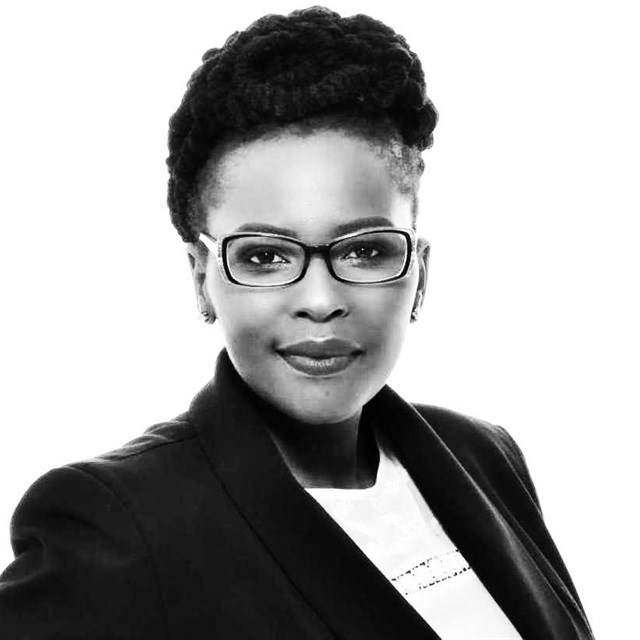Tell the authentic stories of Africa

In the last two weeks, coverage of Africa in global media has been dominated by a distasteful remark about Africa, by an unrepentant US president. After 12 months in office, Donald Trump is yet to articulate a clear foreign policy position on Africa, yet with one word has managed to distort global news about Africa. It is a tragedy, because the ignorance of his statement should be obvious.
Africa starts 2018 on a strong footing. Liberia has for the first time gone through a peaceful democratic transition, with former soccer star, George Weah taking over from Ellen Johnson-Sirleaf as president. South Africa’s ruling ANC has elected a new party leader, respected businessman Cyril Ramaphosa. Zimbabwe is under a new leadership after former dictator Robert Mugabe was forced to leave office in November last year without a single gunshot. Despite a drawn out and messy electoral process, Kenyans are back at work, with most global institutions projecting a robust growth in the year ahead.
There are problems, but these are the big events that are happening in Africa. Yet in the global media landscape, they are “Trumped” by a crude and racist comment. The reason is simple – on the global media landscape, Africa makes the news if it bleeds! The tragedy is that Africans can do nothing about it. It raises important questions for Africa’s PR industry.
Making stories authentic
The role of communications professionals is to translate information into clear, compelling messages that change perceptions and behavior. In this way, we make information consumable. We build bridges between what our clients do and how they are perceived. We help brands improve their relevance. We do this by helping clients tell their stories in authentic ways.
That sounds like PR insider talk. It is not. Making stories authentic is about making them resonate with the real lives of consumers, so that they relate with products that improve and add value to their lives. The logic of it is that consumers only buy things that they believe improve their quality of lives.
Our future is bright and full of potential – but the rest of the world will never know that until we begin to tell our story as it must be told.
It is no different when you think about Africa’s story. The African story that is told by Donald Trump is fake and dangerous. The authentic story about Africa speaks of our realities as we live and experience them. This story can only be told by Africans who live it, how they live and in words that have meaning to their lives.
Today, Africa has problems – corruption, mismanagement of the economy, a handful of dictators that refuse to go and frustration among youth who choose to migrate to Europe - are just some of these problems. But these are very different problems from those that we had 20 years ago.
In the mid 1990s, South Africa was going through a delicate transition, Rwanda was on its knees after a genocide that killed a million people, millions of Somalis and Sudanese nationals were scattered in the world as refugees, Angola was in full civil war, a dictator was refusing to step down in Nigeria. The scale, complexity and impact of these problems are very different from what we are seeing today.
The story is in how Africa covered that distance through the lives of people that lived through the last 20 years. Liberia, Rwanda, Zimbabwe, South Africa, Angola and Mozambique are countries that came back from the dead in only 20 years. It is the story of a single mother that took her three children through university with the salary of a menial worker; the entrepreneur who built up a retail business from only one makeshift shop. It is about the youth who after dropping out of school now have a PhD, or the story of people that risked everything to own the future.
Tell your story
It is your story, and it is my story and that story is not being told. Telling that story begins by Africans speaking for themselves. Each of us has a fascinating story to tell of how we lived the last 20 years. We can’t tell these stories if we do not own the platforms to do so. Of course global media houses carry such stories, but often, the headlines, the perspective and the voice that tells our story is so unfamiliar that it is impossible to identify with. And it’s only ever bad news or Trump induced news about us that makes the front pages!
There is little that is valuable or interesting in explaining to Africa why Trump is the way he is. Africa has a very long and intimate experiences of racism. The real story is in how Africans are harnessing technology, creating their own channels, and communicating their stories.
This is the role African communications professionals must own as ours to play. This story is told through the success of companies like MTN and Standard Bank across Africa; Iroko in Nigeria, that has over 2 million followers; M-Pesa in Kenya; Ecobank from Togo; Tanjet in Tanzania; Quality Chemicals in Uganda; Chocolate City in Ghana; Guanomad in Madagascar.
These clients will come to us if they know and trust that we will tell their story in a powerful, authentic voice and with the force and genius that match their own inspiring journeys. They won’t pay for us to prove ourselves, they will pay because we have proven ourselves.
And what better time to tell than right now when technology makes it possible to record and broadcast to millions an inspiring story through a smartphone and a democratic social media? The story about Africa’s response to Trump is not in the interviews by talking heads, nor is it in the trolling of Trump. It is in the million brilliant ways that Africans subverted Trump’s insult, and used it to have a conversation about themselves among themselves.
Our future is bright and full of potential – but the rest of the world will never know that until we begin to tell our story as it must be told.
About Moliehi Molekoa
Moliehi Molekoa is managing director for Magna Carta.









